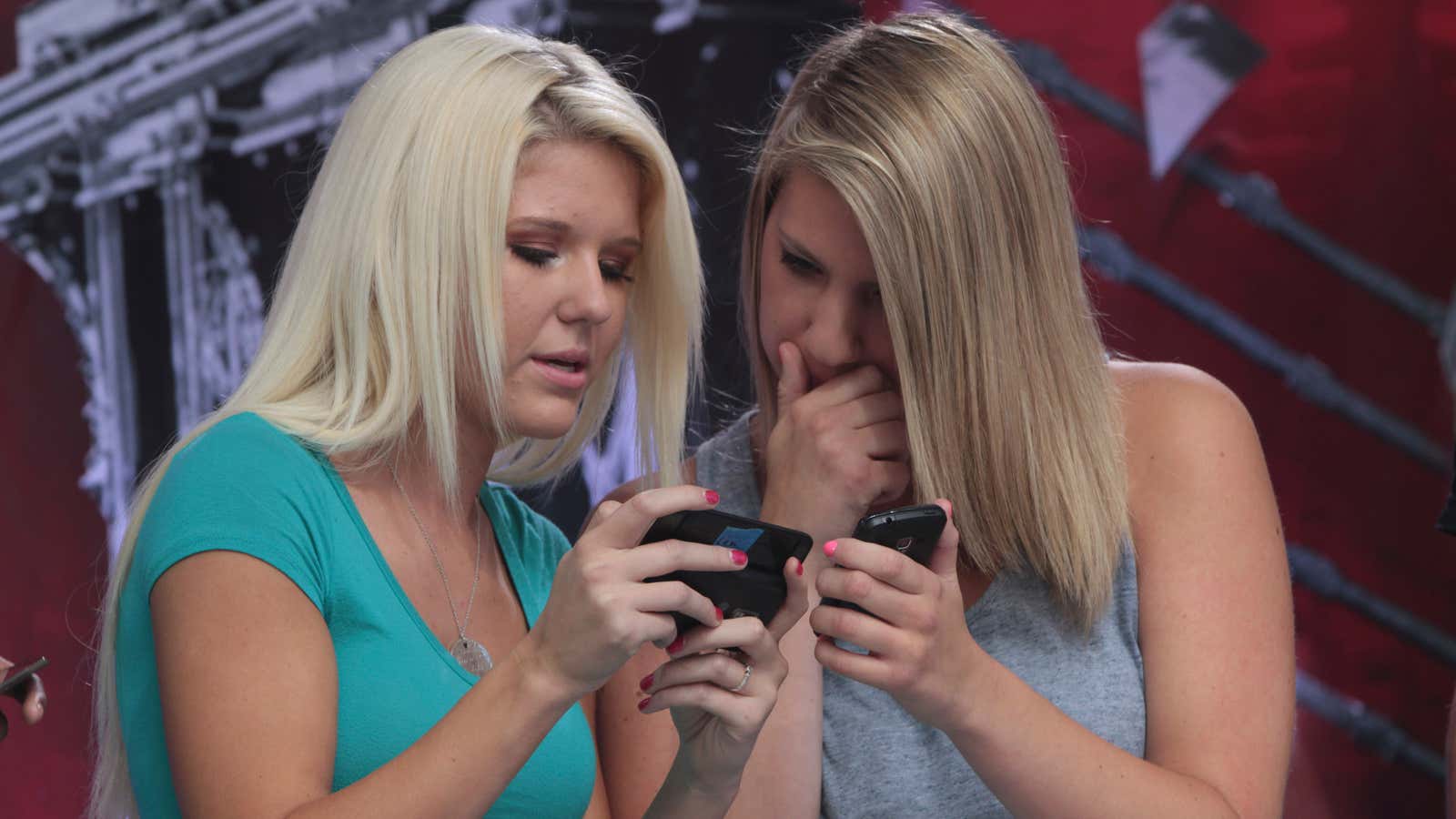Tinder took a big, clumsy swing at the dating industry three years ago and won, luring millions of new users into the world of online dating. Hearts were broken. Men ran wild. Then, agile, enterprising competitors came in to pick up the pieces. They offer people what Tinder, the “hookup app,” can’t seem to deliver: relationships.
Mobile dating apps like Bumble, JSwipe, and Hinge seek to attract users who are serious about dating by targeting people based on their identities, preferences or networks. But, it turns out, narrowing the pool is not enough. Despite having gone through the steps of signing up and swiping right, users don’t always chat up their matches.
Today, Hinge announced that users will have 24 hours to begin a conversation with a match before they disappear back into the endless stream of singles for someone else to snatch up. Users will also have to exchange numbers before their conversation disappears after 14 days of matching and subsequently beginning communication.
“It’s really a way to help both parties figure out when they should be engaging,” Karen Fein, a spokesperson for Hinge explained.
Hinge joins Bumble and JSwipe in putting users on a 24 hour deadline to communicate. Bumble boasts a 60% conversion rate of match-to-communication, and Hinge reports that the share of matches that resulted in conversations increased by 50% when they ran a beta version of the new deadline for a week.
Hinge users take an average of two and a half days to start a conversation, but users who messaged a match within the first 24 hours were twice as likely to get a response, according to Fein.
“There’s clearly a window here,” she told Quartz. “If you want a response you should message sooner.”
Behind the numbers is a question of psychology. Why do people need to be strong armed into flirting?
Bumble founder Whitney Wolfe, who was ousted from Tinder last year, confronted the psychological factors of mobile dating head-on in her app by removing the taboo of making the embarrassment-laden “first move.” On Bumble, only females can send the first message in a heterosexual match.
“He can’t say ‘you’re desperate,’ because the app made you do it,” she told Time.
A 24 hour time limit for matches to communicate operates on a similar assumption. By forcing users to communicate quickly, the app removes the chance that a user who responds immediately is perceived as desperate or overly eager.
“If there is any stigma attached to messaging too soon, then that’s eliminated,” Fein said. “That’s probably one of the reasons more conversations are started with the deadline. It’s either now or nothing.”
Of course, there’s room for improvement. Twenty-four harrowing hours still stand between you and your potential soulmate. Confirming what all women already knew, Hinge found that men took 20% longer than women to respond when a woman sent the first message after a match. Men on Bumble apparently behave similarly. Bumble spokesperson Jen Stith told Time that the company is considering adding a time limit for men to respond to messages from women. Given the effectiveness of the 24 hour deadline, users will likely see more in-app refereeing in the future.
“We have a series of features coming out that are all focused on helping you find a deeper connection,” Fein said of Hinge’s plans for the next few months.
While this may come as a relief to the nervous triple-texter, these apps walk a thin line between facilitating relationships and alienating their users as they get into the murky business of co-opting the game of love. Ask any single twenty-something: sending a well timed text to a potential romantic partner is not a science, but an art.
